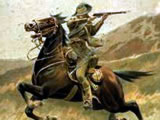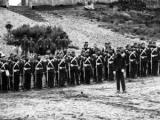What happened that day?
See historic events for any day of the year by entering the date below. Why not try your birthday?
Kiwi of the Week
Today in History

1902 End of the battle of Langverwacht Hill
The South African War of 1899-1902, often called the Boer War (sometimes the Second Boer War), was the first overseas conflict to involve
At Langverwacht Hill, near the Orange River, a Boer force broke through a British cordon at a point on the line held by
The 1 March 1902 issue of The Star newspaper, under the heading of ‘The Gallant Seventh’, acknowledged ‘a feeling of general sadness’. But it went on to add that ‘we can't make cakes without breaking eggs. After all, the same number might soon have filtered away, one by one, the victims of enteric. These have at least had a chance to leave a glorious name, and they have done it’.
Despite the setback at Langverwacht, the New Zealanders were reported to have 'displayed great gallantry and resolution’. Throughout the war the
A tight corner, a New Zealander c.1900 (detail)
Internal links

1870 Last detachment of Imperial forces leaves New Zealand
The final detachment of the 18th (Royal Irish) Regiment departs New Zealand, leaving the Armed Constabulary (formed in 1867) responsible for New Zealand's internal defence.














